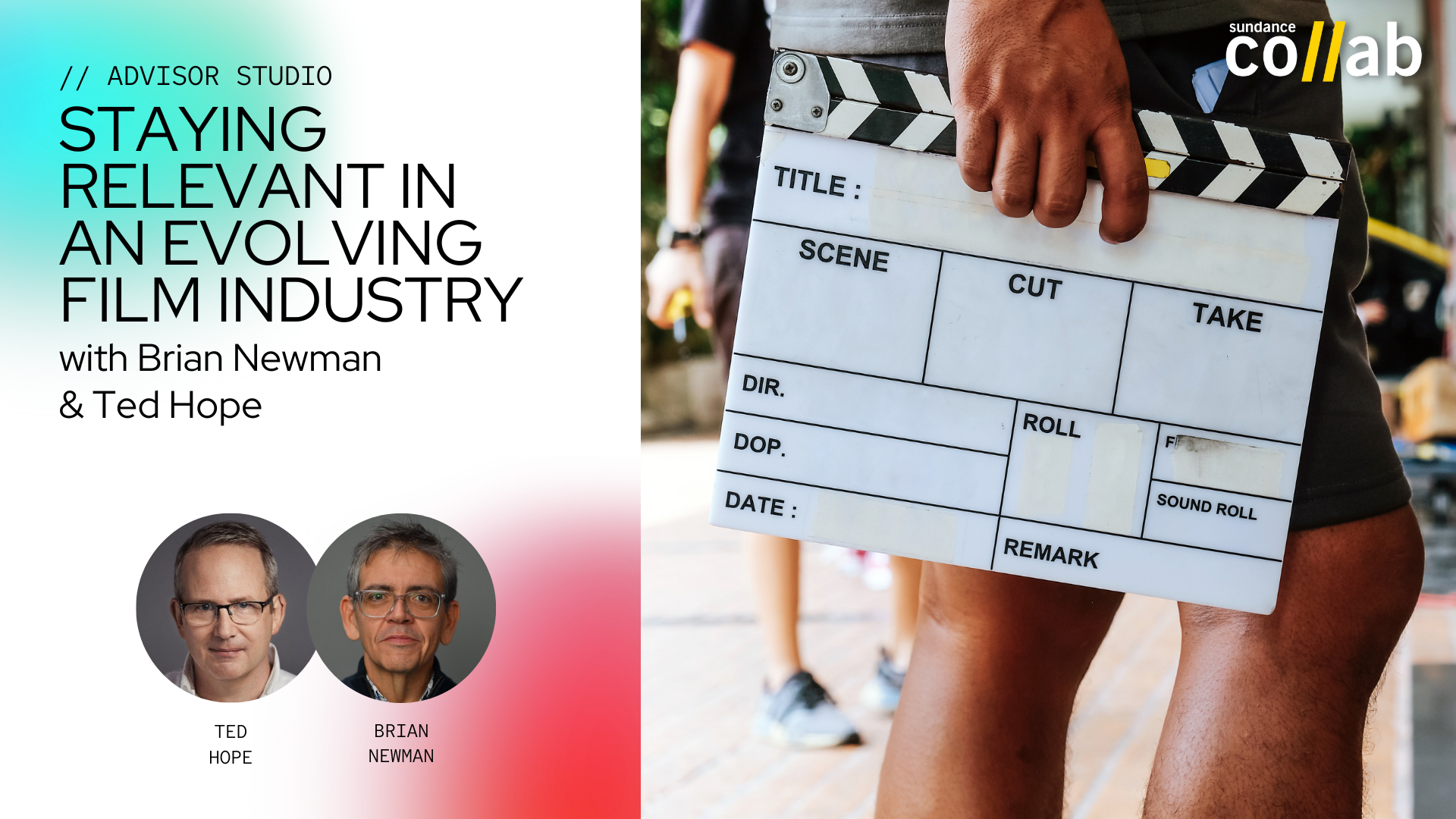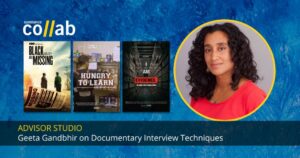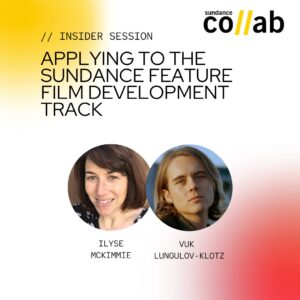By Stephanie Ornelas
Greek philosopher Heraclitus once said that the only constant in life is change. It’s safe to say the phrase continues to resonate for many — especially those in the film industry. Tune in to Sundance Collab’s Advisor Studio: Staying Relevant in an Evolving Film Industry with Brian Newman & Ted Hope, and you might hear the same from longtime producers Hope (Cassandro, Walking and Talking) and Newman (The Outside Story, Love & Texas).
“Everything’s changing — always,” says Hope as he kicked off the event on May 10. “I wrote my first article, ‘Indie film is Dead,’ in 1995, and most of those points still hold true today. Something that comes with trying to navigate those shifting sands or choppy seas is learning how to look backwards and forwards simultaneously or really in all directions.”
During the informative session, Hope and Newman get into the specifics of how this can be done.
“You want to try to develop pattern recognition for what the most likely scenarios are that haven’t yet arrived,” says Hope. “And I think you do that a lot by learning how to look backwards into the recent past.”
Here are just a few takeaways from the insightful — and at times, comical — hourlong event:
Have multiple projects in the works…
“This weekend, I spent my time at a new [event] called Series Fest, which is all about episodic streaming. And I was sitting down for dinner with three producers — all of whom are quite successful — and even though [we] were talking about the fact that we’ve never been in a worse time of things collapsing and falling apart and a really tough market in the business, they were all very happy with what they were doing as producers, and it was because they’re all very entrepreneurial,” explains Newman.
“The producers I was talking with were all the kind of people that were doing multiple projects at a time. And if I could sum up this — one thing is they weren’t being precious. They weren’t feeling like they had to make that film that’s going to sell for ten times what they spent on it to Netflix.”
Instead, Newman clarifies, they were thinking about all the different ways they could bring their stories to life.
“Which included producing podcasts, gaming, graphic novels, and all these other places for [intellectual property]. They were thinking about how they would expand that IP across multiple different platforms and find stories in new ways and reach audiences in new ways.”
… And broaden your skill base
Newman continues: In order for creators to make it through a tough market, it’s important that they make sure their careers are sustainable by expanding their skill sets and being open to new projects.
“They’re not just producing their labor of love out to drive a project, which they’re still doing and everyone should still do,” says Newman of his peers. “Stay focused on that artistic part, too. But they’re also looking at doing advertising, branded content, episodic content, and doing their feature film that they hope to bring to Sundance. So they’re all being quite entrepreneurial and broadening their skill base and the types of [projects] they’re working on.”
Know your rights, and protect your IP
“One of the most important things is to understand that it’s really all about IP at the end of the day, which we all talk about in this industry. It’s really about making sure you own your rights and that you understand what you can do with them,” stresses Newman.
Driving home the importance of an entrepreneurial spirit among creators, he explains, “You’re now able to do things like test things out. You can start to find an audience. If you have that IP, you can explore, see what it’s like as a podcast, see what it’s like as a web comic. You can do all these things to try to test things with your audience. As long as you own that underlying IP, you can keep expanding on it.”
Embrace technology
It’s no secret that evolving technology — such as the use of artificial intelligence — is a huge topic of conversation across a number of industries. And while Newman acknowledges that many are afraid of it, he emphasizes the importance of embracing new ways of filmmaking in order to grow creatively.
“I had a great conversation with [documentary filmmaker] Gary Hustwit, and he’s worked [with a professional coder] to build at the code level — an actual generative AI that they’re using [to edit his new film]. He told me that the most exciting part of it is he’s still going to edit his version of the movie, but AI is making edit decisions that he would never make, and some of them he’ll throw away, but some of them are actually opening his mind to think about [how] he’ll cut his movie in a completely different way,” explains Newman. “He’s using that to spark his creativity.”
“I know other people making comic books, people who want to do animation and couldn’t do it but can now use [AI] to build their storyboards for the animation they want to build. Then they’ll go hire the actual animator, who will do it in real time. There’s a million opportunities there to be explored. Any time a new technology has come along like this — that’s like magic — great new things happen in art,” Newman continues.
And Hope adds, “I think if you’re in the first half of your career, you would be a fool not to try to fully explore every new technology that comes your way. Those are skills that are going to be needed.”
Know your values, and stay true to them
A good producer has good values… and thick skin. Hope encourages participants to gear up for a potentially chaotic time in the industry — but those who are truly passionate about cinema must stick with it.
“You have to recognize early on in your career that you are in an industry filled with liars and cheats and malcontents. How are you going to survive that? By keeping the good people close, knowing what your own values are, and ultimately being a good human being. That’s going to help you make better films. That’s going to make your skin harder than a lobster shell. And it’s going to allow you to get back on the horse after you experiment with like 12 different things.”
And while Hope stresses that the film industry could be facing a “hurricane,” partially because of an oversaturated streaming market, he remains hopeful that with evolving technology and a new generation, fresh ideas — and solutions — will be born.
“I’m super optimistic that many of you in this room right now are going to go out and create not just great movies, but great business models and things that also get a lot of movies made. Producers generate far more movies than directors.
“New models will be revealed, and people will build new things,” Hope continues. “I think we’re on the verge, for the first time ever, of actually being able to build an independent indie-film system — one that is not a parasite on the back of Hollywood.”
To get the full Advisor Studio experience and hear what else Hope and Newman had to say about staying relevant in an evolving film industry, watch the full recording. And be sure to check out our other Advisor Studio discussions, like Advisor Studio: Financial Planning for Creatives: From Taxes to Retirement with Creative Capital.










